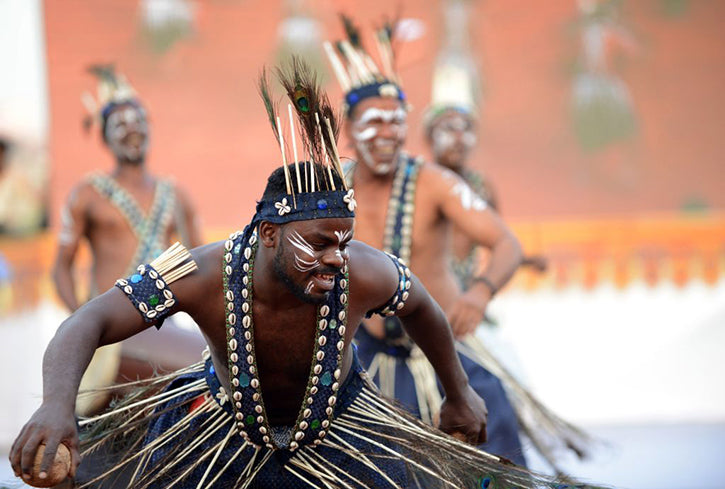Imagine stepping back in time to a bustling port city in India (today the three countries of India, Pakistan & Bangladesh), around 628 CE. The salty sea breeze mixes with the scent of spices and the rhythmic thrum of drums. Ships from far-off lands are docked, their cargo not just goods, but lives and stories. Among these travelers are the Siddi—the community whose origins trace back to the Bantu peoples of Southeast Africa. Their journey from the Zanj coast, through the Arab Slave Trade and beyond, is a testament to the complex tapestry of history and migration.
The name "Siddi" itself is a window into this rich past. It might have emerged from the Arabic "sahibi," a term of respect, or perhaps from "Sayyid," the title of the captains who first guided these travelers to Indian shores. While "Siddi" connects them to their African roots, the term "Habshi" also echoes through history, a broader label once used for Africans. The Siddi’s tale is not just one of survival but of profound cultural fusion.
Who Are the Sheedis? The Sheedis, also known as Siddis, are an ethnic group in Pakistan with African roots. Their ancestors, the Bantu people from Southeast Africa, arrived in the Indian subcontinent over a thousand years ago through the Arab slave trade. The Sheedis have settled mainly in the coastal areas of Sindh and Balochistan, including Karachi, Hyderabad, and Thatta and number at about 150,000. Over the centuries, they've merged African traditions with local Pakistani customs, forming a distinct cultural identity.
Challenges Faced by the Sheedis Throughout history, the Sheedis have faced challenges due to their African heritage and darker skin. The legacy of slavery and ongoing systemic racism and colorism have marginalized them. Even today, they experience discrimination and limited opportunities in education, employment, and social mobility.
Cultural Significance Despite these challenges, the Sheedis have made significant contributions to Pakistan’s cultural landscape. Their heritage is celebrated through events like the annual Sheedi Mela in Karachi, which features traditional music, dance, and rituals, including the Goma dance reflecting their African roots.
Sheedi craftsmanship, including beadwork and textile designs, is another important aspect of their culture. These crafts not only provide livelihoods but also help preserve their cultural identity.
As social media and access to the internet has boomed in Pakistan in the last few years, the Sheedi community, their contributions, and challenges they face have been coming to greater light. For example, Tanzeela Qambrani, the first Sheedi woman to secure a seat in the Pakistani Parliament in 2018, made poignant connections to the murder of George Floyd in 2020 and the marginalization of African-descent people across the planet.
The Future of the Sheedi Community The Sheedi community is working towards greater recognition and equality in Pakistani society. Activists and leaders are advocating for better representation and opportunities. As younger generations embrace their African and Pakistani heritage, there's hope for a more inclusive future.
By acknowledging and celebrating the Sheedi community’s history and contributions, we can create a more inclusive society that values all its members. The Sheedis are a vital part of Pakistan's past, present, and future.
Their legacy is a reminder of the ever-flowing river of human migration, culture, and memory—a dance that continues to resonate through time.
Additional Resources:
- Tanzeela Qambrani's TED Talk recounting her personal journey as an Afro-Pakistani woman
- African Diaspora: A Journey To Pakistan's Afro-Communities
- A day in the life of a Sheedi boy residing in Sindh, Pakistan


